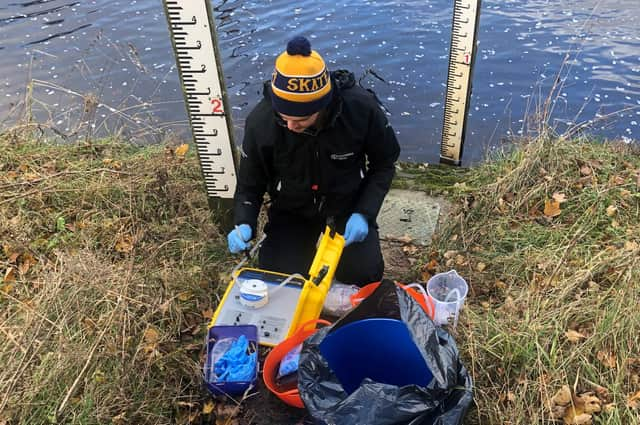Pilot project aims to safeguard native crayfish


The £20,000 National Crayfish Monitoring Programme includes environmental DNA (eDNA) surveying that will focus on identifying the presence of native white-clawed crayfish, invasive signal crayfish and crayfish plague.
Initial surveys have taken place on the Blyth and Wansbeck rivers, as well as in North and West Yorkshire.
Advertisement
Hide AdAdvertisement
Hide AdThe signal crayfish, which originates from America, is bigger, more aggressive and out-competes the native white-clawed crayfish. They also carry a fungal disease known as crayfish plague, which is fatal to the native species.
Parts of the North East and Yorkshire have some native crayfish populations in their rivers, some of the last strongholds in the country.
Ian Marshall, biodiversity technical specialist in the North East and white-clawed crayfish national species lead for the Environment Agency, is leading on the work.
He said: “It’s well known that our native white-clawed crayfish is in perilous danger and it’s imperative we take steps to safeguard its future.
Advertisement
Hide AdAdvertisement
Hide Ad“The more we know about the presence and movement of both native and non-native crayfish, the more we can do to help.
“By using the latest techniques, we will be able to better focus our efforts, enabling us to make a greater impact on conserving this valuable species.”
It is hoped that the new survey methods will better support white-clawed crayfish conservation efforts.
The project is funded jointly by the Environment Agency and Defra.